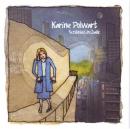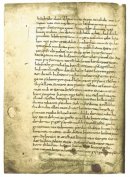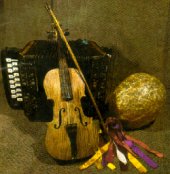Will ye go to Flanders, my Mally, O?
Will ye go to Flanders, my Mally, O?
There we'll get wine and brandy,
And sack and sugar-candy
Will ye go to Flanders, my Mally, O?
Will ye go to Flanders, my Mally, O?
And see the bonny soldjers there, my Mally, O
They'll gie the pipes a blaw
Wi' their plaids and kilts sae braw,
The fairest o' them a', my Mally, O
Will ye go to Flanders, my Mally, O?
And see the chief commanders, my Mally, O
You'll see the bullets fly
And the soldiers how they die
And the ladies loudly cry, my Mally, O?
Will ye go to Flanders, my Mally, O?
And join the bold hielanders, my Mally, O?
Ye'll hear the captains callin'
And see the sergeants crawlin'
And a' the soldjers fallin', my Mally, O.
Will ye go to Flanders, my Mally, O?
There we'll get wine and brandy,
And sack and sugar-candy
Will ye go to Flanders, my Mally, O?
Will ye go to Flanders, my Mally, O?
And see the bonny soldjers there, my Mally, O
They'll gie the pipes a blaw
Wi' their plaids and kilts sae braw,
The fairest o' them a', my Mally, O
Will ye go to Flanders, my Mally, O?
And see the chief commanders, my Mally, O
You'll see the bullets fly
And the soldiers how they die
And the ladies loudly cry, my Mally, O?
Will ye go to Flanders, my Mally, O?
And join the bold hielanders, my Mally, O?
Ye'll hear the captains callin'
And see the sergeants crawlin'
And a' the soldjers fallin', my Mally, O.
Contributed by Vanni Guarnieri - 2008/6/10 - 10:48
Non essendo indicata alcuna esecuzione, vorrei segnalare:
"We Ye Go To Flanders" del cd "Continental Reel" (Robi Droli, 1996) del gruppo "Italo-Irlandese" dei Birkin'Tree
(il titolo e' leggermente diverso ma il testo pressoche' identico)
esiste pure una versione degli Ossian (dal disco "Dove Across the Water", precedente a quella del gruppo ligure, dalla quale hanno tratto ispirazione).
"We Ye Go To Flanders" del cd "Continental Reel" (Robi Droli, 1996) del gruppo "Italo-Irlandese" dei Birkin'Tree
(il titolo e' leggermente diverso ma il testo pressoche' identico)
esiste pure una versione degli Ossian (dal disco "Dove Across the Water", precedente a quella del gruppo ligure, dalla quale hanno tratto ispirazione).
Gianfranco Robiglio - 2014/9/20 - 19:13
Language: English
Versione di June Tabor dal disco collettivo intitolato “We Died in Hell—They Called it Passchendaele” pubblicato nel 1993.
Testo trovato su Mainly Norfolk: English Folk and Other Good Music, dove si fa risalire l’origine della ballata al periodo della guerra di successione spagnola (1702-13)
Testo trovato su Mainly Norfolk: English Folk and Other Good Music, dove si fa risalire l’origine della ballata al periodo della guerra di successione spagnola (1702-13)
WILL YE GO TO FLANDERS?
Will ye go to Flanders, my Mally-O?
Will ye go to Flanders, my bonny Mally-O?
There we'll have ale and brandy,
Sack and sugar-candy;
Oh, will ye go to Flanders, my Mally-O?
Will ye go to Flanders, my Mally-O?
Will ye go to Flanders, my bonny Mally-O?
There you'll see the plaidies swirlin',
And you'll hear the pipies skirlin',
Oh, will ye go to Flanders, my Mally-O?
Will ye go to Flanders, my Mally-O?
Will ye go to Flanders, my bonny Mally-O?
There you'll hear the captain calling,
See the sergeat crawling,
And the soldiers, how they're falling, my Mally-O?
And will ye go to Flanders, my Mally-O?
To see the bold commanders, my bonny Mally-O?
There you'll see the bullets fly,
You'll hear the ladies cry
And the soldiers how they die, my Mally, O.
Will ye go to Flanders, my Mally-O?
Will ye go to Flanders, my bonny Mally-O?
There we'll have ale and brandy,
Sack and sugar-candy;
Oh, will ye go to Flanders, my Mally-O?
Will ye go to Flanders, my Mally-O?
Will ye go to Flanders, my bonny Mally-O?
There you'll see the plaidies swirlin',
And you'll hear the pipies skirlin',
Oh, will ye go to Flanders, my Mally-O?
Will ye go to Flanders, my Mally-O?
Will ye go to Flanders, my bonny Mally-O?
There you'll hear the captain calling,
See the sergeat crawling,
And the soldiers, how they're falling, my Mally-O?
And will ye go to Flanders, my Mally-O?
To see the bold commanders, my bonny Mally-O?
There you'll see the bullets fly,
You'll hear the ladies cry
And the soldiers how they die, my Mally, O.
Contributed by Bernart Bartleby - 2015/4/30 - 10:03
Language: English
WILL YE GO TAE FLANDERS?
Will ye go tae Flanders, my Mally O?
Will ye go tae Flanders, my Mally O?
We’ll get wine and brandy,
Sac and sugar candy,
Will ye go tae Flanders, my Mally O.
Will ye go tae Flanders, my Mally O?
Tae see the bonnie soldiers, my Mally O?
They’ll gie the pipes a blaw,
Wi their kilts and plaids sae braw,
Ae the fairest o’ them a, my Mally O.
Will ye go tae Flanders, my Mally O?
Gin I tak the royal shillin there my Mally O?
Will ye tae a foreign shore,
For tae hear the cannon roar,
And the bloody shouts o’ war, my Mally O?
Will ye go tae Flanders, my Mally O?
Tae see the bold commanders, my Mally O?
Will ye see the bullets fly,
And the soldiers how they die,
And the ladies how they cry, my Mally O?
Will ye go tae Flanders, my Mally O?
Will ye go tae Flanders, my Mally O?
We’ll get wine and brandy,
Sac and sugar candy,
Will ye go tae Flanders, my Mally O.
Will ye go tae Flanders, my Mally O?
Tae see the bonnie soldiers, my Mally O?
They’ll gie the pipes a blaw,
Wi their kilts and plaids sae braw,
Ae the fairest o’ them a, my Mally O.
Will ye go tae Flanders, my Mally O?
Gin I tak the royal shillin there my Mally O?
Will ye tae a foreign shore,
For tae hear the cannon roar,
And the bloody shouts o’ war, my Mally O?
Will ye go tae Flanders, my Mally O?
Tae see the bold commanders, my Mally O?
Will ye see the bullets fly,
And the soldiers how they die,
And the ladies how they cry, my Mally O?
Language: Italian
Traduzione in italiano della prima versione di Cattia Salto
Una Ballata scozzese risalente al 1600 o al 1700, in cui un soldato in partenza per le Fiandre, chiede alla fidanzata di seguirlo. Potrà assistere alla battaglia sull’alto di una collina, così com’era consuetudine dei tempi recarsi nei pressi dei campi di battaglia (a distanza di sicurezza ovviamente) per “gustarsi” lo spettacolo (come se la guerra fosse uno sport), sorseggiando bevande e mangiando qualche pasticcino. A questa scena idilliaca si contrappone la cruda realtà della morte, così il canto si pone tra le prime canzoni contro la guerra nella storia!
ulteriori considerazioni in http://terreceltiche.altervista.org/wi...
Una Ballata scozzese risalente al 1600 o al 1700, in cui un soldato in partenza per le Fiandre, chiede alla fidanzata di seguirlo. Potrà assistere alla battaglia sull’alto di una collina, così com’era consuetudine dei tempi recarsi nei pressi dei campi di battaglia (a distanza di sicurezza ovviamente) per “gustarsi” lo spettacolo (come se la guerra fosse uno sport), sorseggiando bevande e mangiando qualche pasticcino. A questa scena idilliaca si contrappone la cruda realtà della morte, così il canto si pone tra le prime canzoni contro la guerra nella storia!
ulteriori considerazioni in http://terreceltiche.altervista.org/wi...
Verrai nelle Fiandre mia Molly?
avremo vino e brandy
e vino liquoroso(1) e caramello
verrai nelle Fiandre mia Molly?
Verrai nelle Fiandre mia Molly
a vedere i bei soldati, mia Molly,
che soffiano nelle cornamuse
coi loro tartan e gonnellini così vivaci
la più bella tra le belle, o mia Molly?
Verrai nelle Fiandre mia Molly
a vedere i Comandanti in Capo, mia Molly,
vedrai volare i proiettili
e come muoiono i soldati
e le donne lamentarsi ad alta voce?
Verrai nelle Fiandre mia Molly
per unirti ai coraggiosi highlanders mia Molly
sentirai il richiamo del capitano
e vedrai strisciare il sergente
e tutti i soldati cadere, mia Molly
avremo vino e brandy
e vino liquoroso(1) e caramello
verrai nelle Fiandre mia Molly?
Verrai nelle Fiandre mia Molly
a vedere i bei soldati, mia Molly,
che soffiano nelle cornamuse
coi loro tartan e gonnellini così vivaci
la più bella tra le belle, o mia Molly?
Verrai nelle Fiandre mia Molly
a vedere i Comandanti in Capo, mia Molly,
vedrai volare i proiettili
e come muoiono i soldati
e le donne lamentarsi ad alta voce?
Verrai nelle Fiandre mia Molly
per unirti ai coraggiosi highlanders mia Molly
sentirai il richiamo del capitano
e vedrai strisciare il sergente
e tutti i soldati cadere, mia Molly
NOTE
(1) nella raccolta di Herd sono trascritte solo la I e la III strofa, la II strofa è stata aggiunta da Billy Ross (ex-Ossian) insieme a quest’altra strofa
And will ye go wi me tae Flanders my Mally-o
Gin I’d take the royal shillin my Mally-o
Wid ye tae a foreign shore
A’ tae hear the canons roar
and the bloody shouts o’ war My Mally-o
(2) Sack = sherry, vino bianco liquoroso importato dalla Spagna o dalle Isole Canarie, il termine ricorre nelle broadside ballads del XVII secolo. Sono un po' perplessa sulla traduzione mi verrebbe di scrivere vino liquoroso dolce non fosse che lo sherry è piuttosto secco
(3) oppure scritto anche: coats o red; nella II strofa il soldato descrive un reggimento scozzese con tanto di cornamuse e tartan e poteva trattarsi solo del “Royal Scots” (e di scozzesi delle lowlands) “Highland Regiments” si formano solo ai tempi della guerra di secessione austriaca 1740-1748.
“The Royal Scots saw service under Malborough during the War of the Spanish Succession and followed this with garrison duty in Ireland where they remained until 1742. From this date the two battalions were usually to be separated and posted far apart. The 1st Battalion moved in 1743 to Germany to take part in the Austrian War of Succession, and was involved in the Battle of Fontenoy. In the following year, the 2nd Battalion became involved in the fight against the Young Pretender which culminated in the Battle of Culloden” (tratto da qui)
(1) nella raccolta di Herd sono trascritte solo la I e la III strofa, la II strofa è stata aggiunta da Billy Ross (ex-Ossian) insieme a quest’altra strofa
And will ye go wi me tae Flanders my Mally-o
Gin I’d take the royal shillin my Mally-o
Wid ye tae a foreign shore
A’ tae hear the canons roar
and the bloody shouts o’ war My Mally-o
(2) Sack = sherry, vino bianco liquoroso importato dalla Spagna o dalle Isole Canarie, il termine ricorre nelle broadside ballads del XVII secolo. Sono un po' perplessa sulla traduzione mi verrebbe di scrivere vino liquoroso dolce non fosse che lo sherry è piuttosto secco
(3) oppure scritto anche: coats o red; nella II strofa il soldato descrive un reggimento scozzese con tanto di cornamuse e tartan e poteva trattarsi solo del “Royal Scots” (e di scozzesi delle lowlands) “Highland Regiments” si formano solo ai tempi della guerra di secessione austriaca 1740-1748.
“The Royal Scots saw service under Malborough during the War of the Spanish Succession and followed this with garrison duty in Ireland where they remained until 1742. From this date the two battalions were usually to be separated and posted far apart. The 1st Battalion moved in 1743 to Germany to take part in the Austrian War of Succession, and was involved in the Battle of Fontenoy. In the following year, the 2nd Battalion became involved in the fight against the Young Pretender which culminated in the Battle of Culloden” (tratto da qui)
Contributed by Cattia Salto - 2015/5/9 - 01:31
I think you'll find the 'Mally' is actually 'manny', a diminutive form of man in Scots dialect.
Griff - 2017/11/2 - 16:11
Proprio vero Mally è il diminutivo di Malcom e la domanda diventa
Verrai nelle Fiandre mio Mally?
(ti unirai alle truppe in partenza per le Fiandre?)
Verrai nelle Fiandre mio Mally?
(ti unirai alle truppe in partenza per le Fiandre?)
Cattia Salto - 2018/3/25 - 20:58
×
![]()
Note for non-Italian users: Sorry, though the interface of this website is translated into English, most commentaries and biographies are in Italian and/or in other languages like French, German, Spanish, Russian etc.








Testo e versione MIDI su Digital Tradition